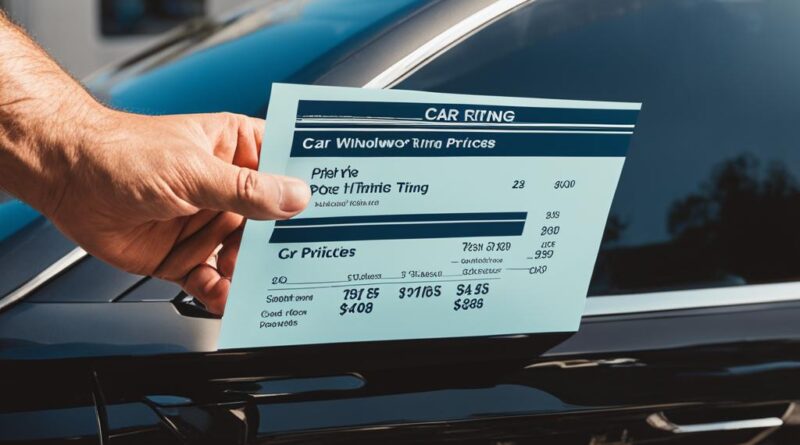Car Window Tinting Prices Explained | Get Rates
Tinting car windows can provide numerous benefits, from UV protection to enhanced privacy. However, the cost of car window tinting can vary significantly depending on various factors. If you’re considering tinting your car windows and want to understand the pricing better, this article will explain the different aspects that influence the cost.
Factors that affect car window tinting prices include the type of tint, warranties, the number of windows being tinted, the type of vehicle, and the complexity of the windows. Additionally, the cost can vary depending on the brand of window tint and the reputation and experience of the installer.
Key Takeaways:
- The cost of car window tinting can range from $100 to $1,000, depending on various factors.
- Factors influencing the cost include the type of tint, warranties, number of windows, vehicle type, and complexity of windows.
- Choosing a reputable installer with experience and certifications is crucial for a high-quality installation.
- Consideration should be given to the warranty offered and the brand of window tint.
- Research and obtain quotes from different shops to get an accurate estimate for the cost of window tinting.
Factors Affecting the Cost of Window Tinting
The cost of window tinting can vary depending on several factors that influence the overall price. It is important to consider these factors when getting quotes for window tinting to ensure an accurate estimate. The following are the main factors that can affect the cost of window tinting:
- Vehicle Type: The type of vehicle can impact the cost of window tinting. Cars with fewer windows generally cost less to tint compared to larger vehicles like vans or SUVs with more windows. Additionally, unique vehicles may have specific aspects that can increase the price.
- Cost of Tint Removal: If your vehicle already has existing window tint that needs to be removed before applying new tint, this can add to the overall cost. Minimal tint removal is usually done without any additional charge.
- Tint Material: The type of tint material used can affect the price. Dyed window tint is typically more affordable compared to carbon or ceramic tint. The quality, durability, and performance of the tint material can also influence the cost.
- Installer Experience: The experience and expertise of the installer can impact the cost of window tinting. Installers with extensive experience and certifications may charge more for their services.
- Overhead: The overhead costs of the tint shop, such as rent, utilities, and employee wages, can contribute to the overall price of window tinting.
- Brand of Tint: The brand of window tint chosen can also influence the cost. Higher-end brands may be more expensive compared to lower-priced options.
By taking these factors into account, you can have a better understanding of the different elements that contribute to the cost of window tinting. It is advisable to research and obtain quotes from different installers to find the best balance between quality and affordability.
Car Window Tinting Costs by Vehicle Type
The cost of tinting car windows varies depending on the type of vehicle. Here is an overview of the estimated costs for different vehicle types:
Coupes:
- Single window tint: $69
- All sides and rear package + sun strip: $279
Sedans:
- Single window tint: $69
- All sides and rear package + front windshield: $465
Trucks (Crew Cab):
- Single window tint: $69
- All sides and rear package + front windshield: $425
SUVs:
- Single window tint: $69
- All sides and rear package + front windshield: $489
Tesla owners can expect to pay more due to the unique aspects of their vehicles. The prices for Tesla window tinting vary depending on the model and the number of windows being tinted.
Cost for Different Types of Car Window Tint
The cost of car window tint varies depending on the type of tint material used. Here is a breakdown of the average costs for different types of window tint:
| Type of Window Tint | Cost Range |
|---|---|
| Ceramic Window Tint | $350 – $850 |
| Dyed Window Tint | $99 – $350 |
| Carbon Window Tint | $150 – $450 |
Ceramic window tint is considered the highest quality film as it does not contain any metal or dye. This makes it more expensive, with costs ranging from $350 to $850. Dyed window tint is the most affordable option, with prices ranging from $99 to $350. Carbon window tint, which contains carbon particles and helps block infrared light, falls in the middle range of costs, typically ranging from $150 to $450.
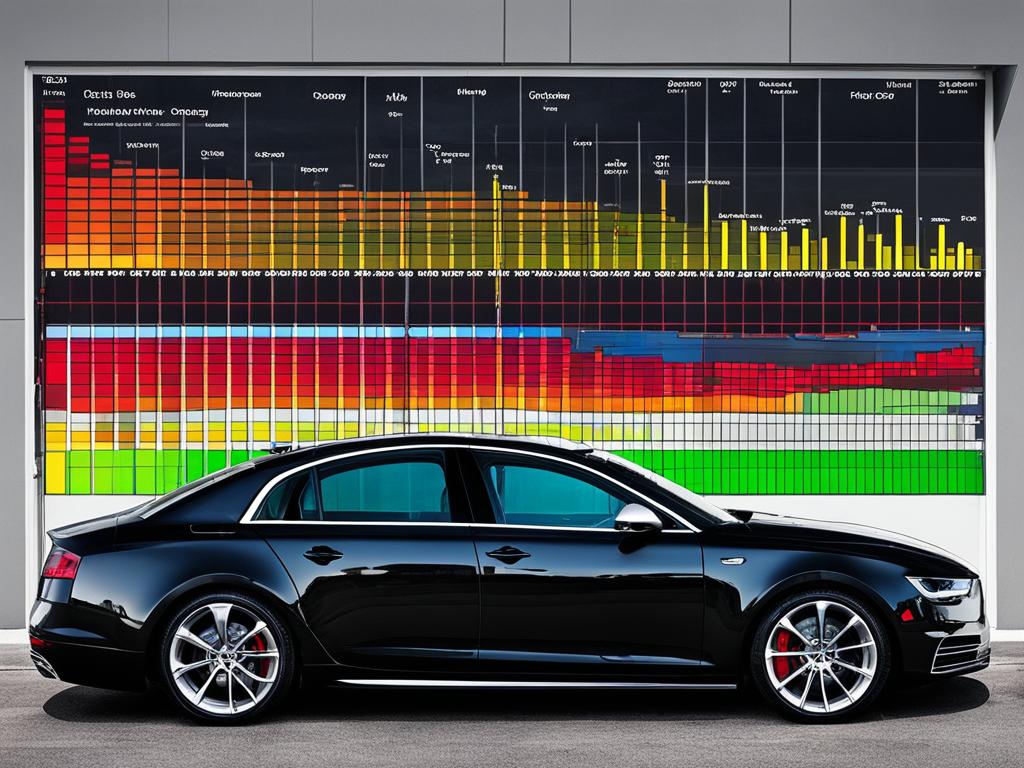
Choosing the Right Tint Material
The choice of tint material will depend on your desired performance and budget. Ceramic window tint offers excellent heat rejection and UV protection while maintaining clarity, making it a popular choice for those seeking top-tier performance. Dyed window tint is a cost-effective option for enhancing privacy and reducing glare. Carbon window tint provides a balance between performance and price, offering good heat and UV rejection.
When selecting a tint material, consider your specific needs and budget to find the best fit for your vehicle.
Keep in mind that the costs mentioned above are estimated ranges and can vary depending on factors such as the size of your vehicle and the number of windows to be tinted. It is recommended to consult with a professional installer to get an accurate quote based on your vehicle and tinting preferences.
Factors to Consider When Choosing a Window Tint Installer
When it comes to choosing a window tint installer, several factors should be taken into consideration to ensure a successful and satisfactory tinting experience. The reputation and experience of the installer play a crucial role in the quality of the installation. Additionally, looking for proper certifications and up-to-date training ensures that the installer is knowledgeable about the latest tinting technologies and techniques. Equally important is selecting an installer that offers a comprehensive warranty for both the tint product and the workmanship. By considering these factors, you can make an informed decision and choose an installer who will deliver high-quality tinting results.
Experience and Reputation:
Choosing an installer with years of experience and a solid reputation in the industry is vital. Experienced professionals have honed their skills and are more likely to deliver a flawless installation. Checking online reviews and asking for recommendations from friends or family can help you gauge the installer’s reputation and customer satisfaction.
Certifications:
Verifying that the installer has the necessary certifications is crucial for ensuring that the tinting work meets industry standards. Certified installers have been trained on proper techniques and have a thorough understanding of the tinting process. This guarantees a professional installation that adheres to the highest quality standards.
Warranty:
Choosing an installer who offers a comprehensive warranty is essential for protecting your investment. A tint warranty should cover both the tint product and the workmanship, providing you with peace of mind and protection against any defects or issues that may arise.
Comparing Tint Installers
| Factor | Description |
|---|---|
| Experience and Reputation | Look for installers with a long-standing reputation for excellence in the industry. |
| Certifications | Verify that the installer has the necessary certifications for the specific tinting products being used. |
| Warranty | Ensure that the installer offers a comprehensive warranty that covers both the tint product and the workmanship. |
By considering the installer’s experience, reputation, certifications, and warranty offerings, you can make an informed decision and select a window tint installer who will meet your expectations and deliver a high-quality tinting job.
Pros and Cons of DIY Window Tinting
DIY window tinting offers the convenience of affordability and the ability to work on your own schedule. With pre-cut tint kits available online for under $75, it can be an attractive option for those looking to save money. However, there are important factors to consider before embarking on a DIY project.
One of the main challenges of DIY window tinting is the requirement for specific tools and skills. Installing window tint properly requires precision and attention to detail, which may be difficult for those without previous experience. It can be a time-consuming and frustrating process, especially if you encounter difficulties during installation.
Table: Pros and Cons of DIY Window Tinting
| Pros | Cons |
|---|---|
| 1. Affordability | 1. Requirement for specific tools and skills |
| 2. Flexibility to work on your own schedule | 2. Time-consuming and challenging installation process |
| 3. Opportunity to learn a new skill | 3. Risk of not complying with local tint laws |
| 4. Potential savings compared to professional installation |
One significant risk of DIY tinting is the possibility of not complying with local laws and regulations regarding window tint darkness. Each state has specific guidelines for how dark car windows can be tinted, and failing to adhere to these regulations can result in fines and the need to remove and redo the tinting.
On the other hand, choosing to have your windows tinted by a professional installer offers several advantages. Professional installers have the experience and expertise to ensure a high-quality installation, minimizing the risk of errors or subpar results. They are also knowledgeable about local tint laws and can help you choose the appropriate tint darkness levels to comply with regulations.
Additionally, professional installation provides access to a wider range of tint materials and options. With DIY tinting, you are limited to the pre-cut kits available online, whereas professional installers can offer custom solutions tailored to your specific needs and preferences.
Finally, professional installation typically comes with a warranty that covers both the product and workmanship. This offers peace of mind knowing that if any issues arise, you have the backing of the installer to rectify them.
Ultimately, the choice between DIY window tinting and professional installation depends on your budget, time availability, and comfort level with the installation process. If you have the necessary tools, skills, and patience, and are willing to research and comply with local tint laws, DIY tinting can be a cost-effective option. However, if you prefer expert installation, access to a wider range of tint options, and the assurance of a warranty, professional installation is the way to go.
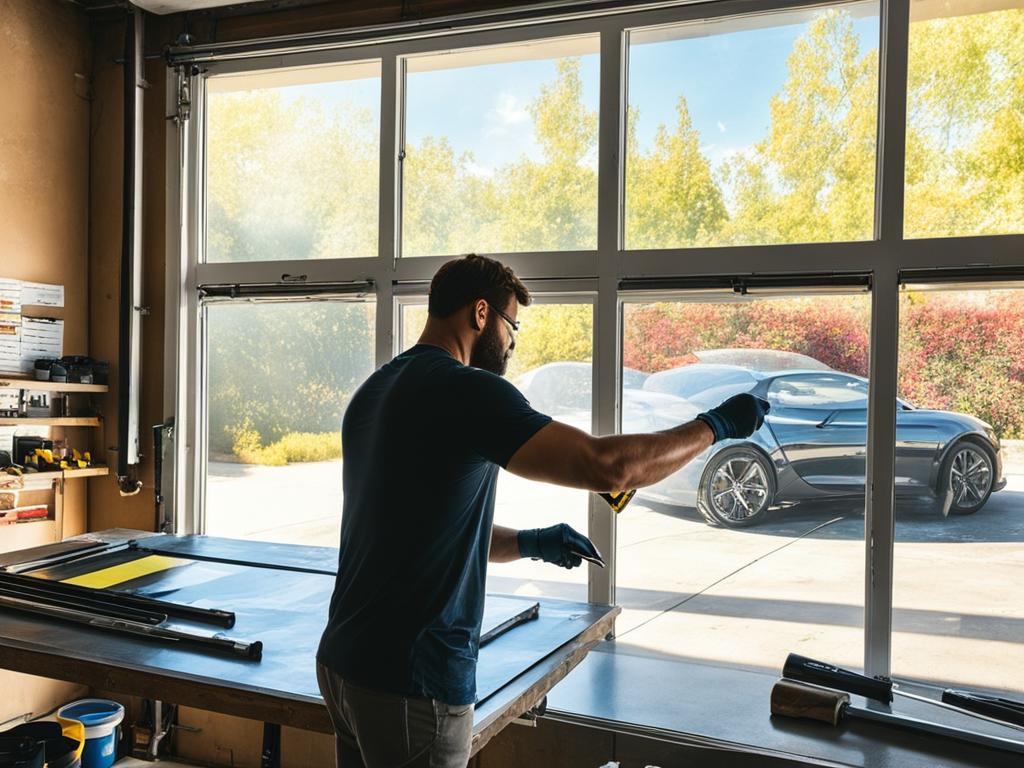
Does Professionally Installed Tint Cost More?
When it comes to window tinting, the cost of professionally installed tint is generally higher compared to DIY installation. While the price can vary depending on several factors, such as the type of tint being used, professional installation typically ranges from $25 to $50 per window.
DIY tint kits, on the other hand, are more affordable but require time, patience, and the need to comply with local tint laws. They can be purchased online for under $75, offering a cost-effective option for those willing to take on the installation process themselves.
Opting for professional installation offers several advantages. First and foremost, it brings the expertise of a skilled installer who specializes in window tinting. These professionals have the knowledge and experience to ensure a high-quality installation, minimizing the risk of errors or subpar results.
Furthermore, professional installation often comes with a warranty. This means that if any issues arise with the tint, such as bubbling or peeling, the installer will rectify the problem at no additional cost. This warranty provides peace of mind and protects your investment in window tinting.
Lastly, choosing professional installation ensures compliance with local regulations regarding window tint darkness. Professional tint installers are familiar with these laws and will ensure that your tint is within the legal limits. This can help you avoid potential fines or penalties for non-compliance.
In summary, while professionally installed tint may cost more upfront, it offers the expertise of an installer, a warranty, and compliance with local tinting regulations. The choice between DIY and professional installation ultimately depends on your budget, time availability, and the desired quality of the tinting job.
Cost Comparison: DIY vs. Professional Tinting
| Tinting Type | DIY Cost | Professional Cost |
|---|---|---|
| Ceramic Tint | Approx. $75 | $25 – $50 per window |
| Dyed Tint | Approx. $75 | $25 – $50 per window |
| Carbon Tint | Approx. $75 | $25 – $50 per window |
Note: The DIY cost mentioned above is an approximate range, representing the cost of purchasing a pre-cut tint kit online.
As seen in the table above, the DIY cost for window tinting is generally around $75, irrespective of the type of tint material. In contrast, professional installation costs between $25 and $50 per window for all types of tint. However, it’s important to consider that while DIY tinting might seem cost-effective, it requires specific tools, skills, and the diligence to adhere to local tint laws.
Additionally, keep in mind that the DIY price does not include the warranty and expertise offered by professional installers. Therefore, when deciding between DIY and professional installation, it’s crucial to assess the overall value, weighing the upfront cost against the quality and long-term benefits of professional installation.
The Importance of Installation Quality
When it comes to window tinting, the quality of the installation is of utmost importance. Even if you invest in the best window film on the market, it can look and perform poorly if not installed properly. Poor installation can lead to issues such as bubbling, peeling, and a decreased lifespan of the tint.
To ensure a high-quality installation, it is crucial to choose a reputable installer with experience and expertise in window tinting. An experienced professional will have the necessary skills to handle the installation process with precision and care, resulting in a flawless finish.
Investing a little more in a professional installation can save you money in the long run. When window tinting is not installed correctly, you may encounter problems that require reinstallation or replacement, which can be costly. By choosing a trusted professional, you can avoid these issues and enjoy the benefits of a well-installed window film.
Remember, window tinting is more than just an aesthetic addition to your vehicle or home. It provides numerous benefits, including UV protection, heat reduction, glare reduction, and increased privacy. However, these benefits can only be fully realized with a high-quality installation.
The Impact of Poor Installation
“Poor installation of window tinting can ruin the look of your vehicle or property and undermine the performance of the film. Don’t let a subpar installation diminish the benefits of window tinting.” – Tony Johnson, Window Tinting Expert
When window tint is not installed properly, it can detract from the overall appearance of your vehicle or property. Bubbling, peeling, and uneven application can make your tint look unprofessional and messy. This can be especially problematic for businesses or individuals who want to make a good impression.
In addition to the aesthetic aspect, poor installation can also impact the performance of the window film. Bubbles and creases can disrupt the clarity of the tint, causing visibility issues. Moreover, a subpar installation may not effectively block UV rays or reduce heat, defeating the purpose of tinting in the first place.
By prioritizing installation quality, you can ensure that your window tint looks great and functions effectively, providing you with the desired benefits.
Quality of Window Film Installation
Choosing a reputable installer is essential for ensuring the quality of the window film installation. When you opt for a professional, you can expect:
- Expertise and Experience: A skilled installer will have the knowledge and experience to handle various types of window film and installation techniques.
- Precision and Attention to Detail: Attention to detail is crucial during the installation process to achieve a seamless and flawless finish.
- Proper Tools and Techniques: Professional installers have access to the right tools and techniques to ensure a precise and long-lasting installation.
- Post-Installation Support: Reputable installers often provide warranties or guarantees to cover any potential issues that may arise after the installation.
Trustworthy installers will also use high-quality window film products from reputable brands, further guaranteeing the longevity and performance of the tint.
When it comes to window tinting, investing in a high-quality installation is a decision that pays off in the long run. By choosing an experienced professional, you can enjoy the full benefits of window tinting and avoid the pitfalls of poor installation.
| Benefits of Choosing a Professional Installer | Drawbacks of Poor Installation |
|---|---|
|
|
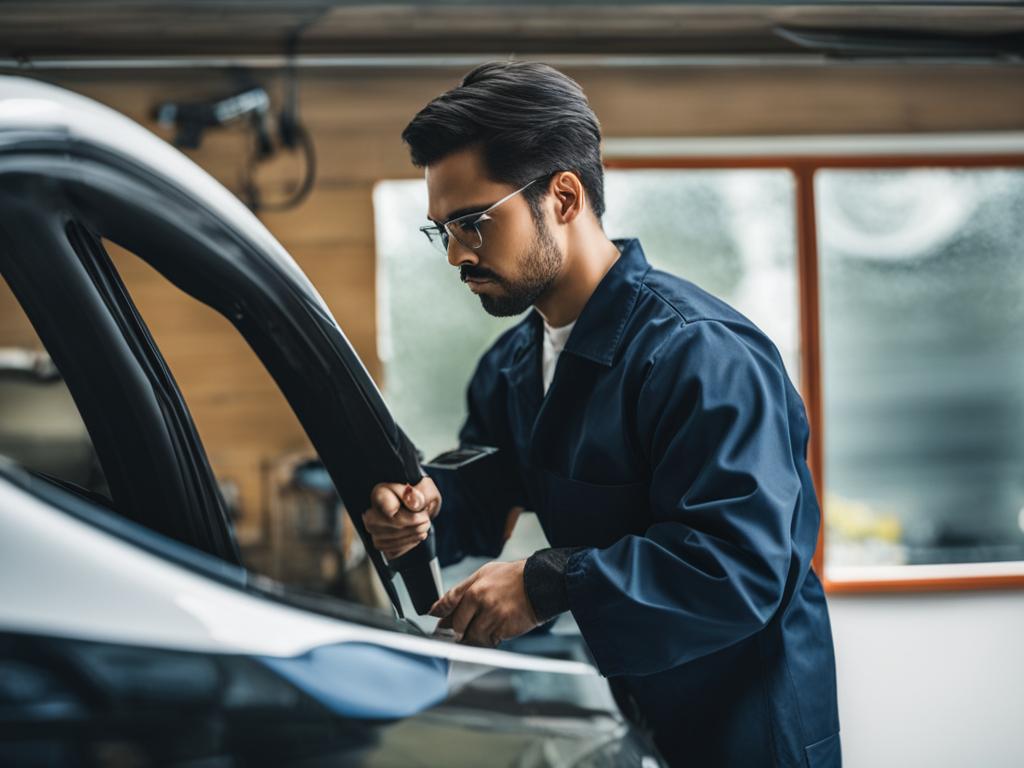
Other Factors to Consider When Tinting
When tinting car windows, there are several additional factors to consider. These include the type of tint material, the number and complexity of windows to be tinted, the warranty offered by the installer, and local tint laws and regulations.
Type of Tint Material
The type of tint material you choose will greatly impact both the performance and cost of the tint. There are various options available, including:
- Dyed Window Tint: This is the most affordable option and provides basic heat and glare reduction.
- Carbon Window Tint: Carbon particles in the film block infrared light, providing enhanced heat rejection.
- Ceramic Window Tint: This is the highest quality film and offers superior heat rejection, UV protection, and clarity.
Number and Complexity of Windows
The number and complexity of windows in your vehicle can affect the time and labor required for the tinting process. A vehicle with more windows or intricate shapes may require additional effort and expertise from the installer, which can influence the overall cost of the tinting job.
Warranty Offered
When selecting a window tint installer, it is essential to check the warranty offered for the tint. A reputable installer should provide a warranty that covers both the product and the installation workmanship. This ensures protection against any defects or issues that may arise after the tinting process.
Compliance with Tint Laws
Local tint laws and regulations vary by jurisdiction and specify the darkness limits for window tinting. It is crucial to be aware of these laws to avoid potential legal issues. Ensuring compliance with tint laws ensures both your safety and the legality of your tinted windows.
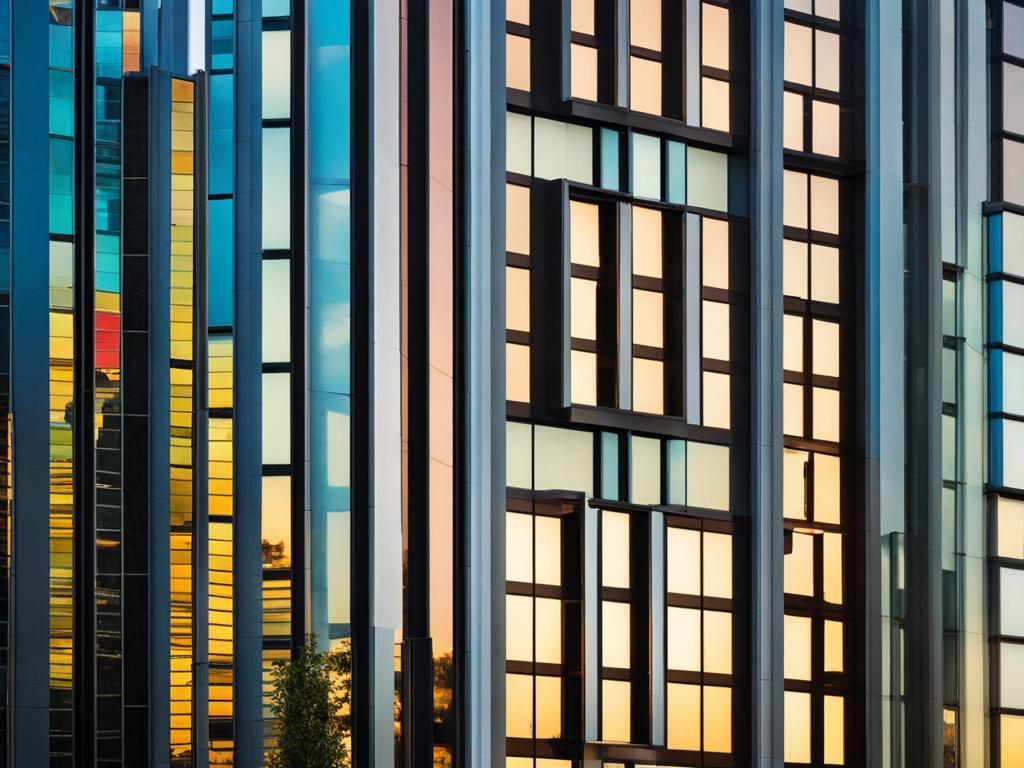
Types of Tint Material and Their Features
| Type of Tint Material | Features |
|---|---|
| Dyed Window Tint | Basic heat and glare reduction |
| Carbon Window Tint | Enhanced heat rejection with infrared blockage |
| Ceramic Window Tint | Superior heat rejection, UV protection, and clarity |
Considering these factors will help you make informed decisions when tinting your car windows. It is important to choose the right tint material, understand the complexity involved in the installation, ensure warranty coverage, and adhere to local tint laws. By taking these factors into account, you can achieve the desired results and enjoy the benefits of a professionally tinted vehicle.
Comparison of DIY and Professional Window Tinting
When it comes to window tinting, there are two main options to consider: DIY tinting and professional tinting. Each option has its own set of pros and cons that you should carefully weigh before making a decision.
The Pros of DIY Window Tinting
- Cost: DIY tinting is generally more affordable compared to professional installation.
- Flexibility: With a DIY kit, you have the freedom to tint your windows at your own pace, whenever it is convenient for you.
- Satisfaction: Completing a DIY project can give you a sense of pride and satisfaction in accomplishing a task on your own.
The Cons of DIY Window Tinting
- Need for Tools and Skills: DIY tinting requires specific tools and skills to ensure a proper installation. Without the right tools or experience, you may end up with subpar results.
- Compliance with Tint Laws: DIY tinting may not comply with local tint laws regarding darkness limits. This can result in fines or the need to remove and replace the tint.
- Limited Range of Tint Materials: DIY kits often have a limited selection of tint materials available, restricting your choices in terms of quality and performance.
The Pros of Professional Window Tinting
- Expert Installation: Professional installers have the experience and expertise to ensure a high-quality installation that meets your expectations.
- Access to a Wide Range of Tint Materials: Professional tint shops offer a wider selection of tint materials, allowing you to choose the one that best suits your needs and preferences.
- Compliance with Tint Laws: Professional installers are knowledgeable about local tint laws and regulations, ensuring that your tint complies with the legal requirements.
- Warranty: Professional installation often comes with a warranty, providing you with peace of mind and protection against any issues that may arise.
The Cons of Professional Window Tinting
- Cost: Professional window tinting is generally more expensive compared to DIY options.
- Dependency on Scheduling: Setting up an appointment with a professional installer may require some planning and coordination.
- Reliance on Others: With professional tinting, you are relying on the skills and expertise of the installer, which may vary depending on the chosen shop.
Ultimately, the choice between DIY and professional window tinting depends on your budget, time constraints, and comfort level with the installation process. If you have the necessary skills, tools, and confidence, DIY tinting can be a cost-effective option. However, if you value expert installation, a wider range of tint materials, and compliance with local regulations, professional tinting is the way to go.
It is important to weigh the pros and cons of each option and choose what works best for you and your specific needs. Regardless of your choice, make sure to research and select a reputable installer or quality DIY kit to ensure a successful window tinting experience.
Find a Reputable Window Tint Installer
When it comes to tinting your car windows, finding a reputable window tint installer is crucial. With numerous options available, it’s important to take the time to choose a tint shop that will provide quality service and ensure a successful tinting experience.
Checking Reviews
One of the first steps in finding a reputable window tint installer is to check reviews from other customers. Reading reviews can provide valuable insights into the quality of the installer’s work and customer satisfaction. Look for shops with positive reviews and a track record of delivering high-quality installations.
Visiting a Showroom
If possible, visit the tint shop’s showroom to see their workmanship firsthand. This allows you to assess the quality of their work and observe the types of tint materials they use. It’s also an opportunity to discuss your specific needs and preferences with the installer, ensuring that they understand your requirements and can suggest the best tint options for your vehicle.
By checking reviews and visiting a showroom, you can make an informed decision when choosing a reputable window tint installer. This will help ensure that you receive quality service and achieve the desired results for your car windows.
Choosing a Tint Shop
When selecting a tint shop, consider factors such as their reputation, experience, and customer reviews. Look for installers who are certified and have extensive experience in the field. Additionally, choose a tint shop that offers a warranty on their work and the tint material used. A strong warranty provides added peace of mind and protection against any potential issues that may arise.
Comparing Reputable Window Tint Installers
| Tint Shop | Reviews | Showroom | Certifications | Warranty |
|---|---|---|---|---|
| ABC Tinting | 4.7/5 | Yes | Window Film Association of America | Lifetime warranty on tint and workmanship |
| XYZ Tint | 4.5/5 | No | Not specified | 1-year warranty on tint and workmanship |
| Quality Tints | 4.9/5 | Yes | International Window Film Association | Lifetime warranty on tint and workmanship |
Note: The table provides a comparison of reputable window tint installers based on reviews, showroom availability, certifications, and warranty offered.
By considering these factors and comparing reputable window tint installers, you can find the right tint shop that meets your expectations and ensures a successful window tinting experience.
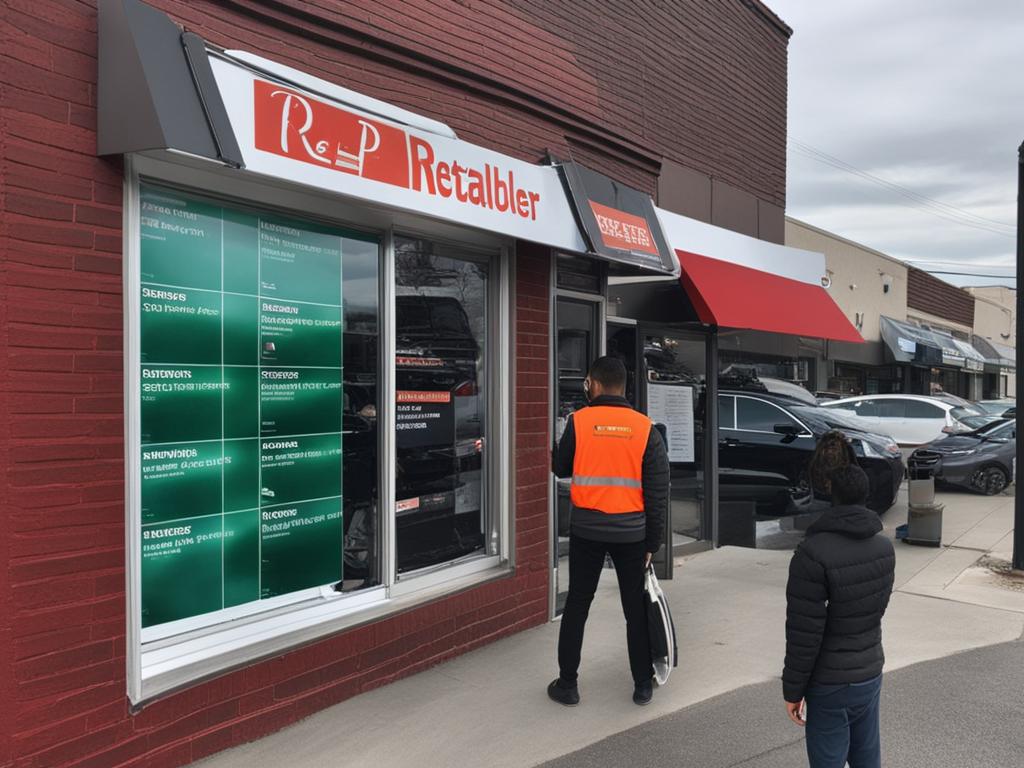
Tips for Getting the Best Window Tinting Results
When it comes to window tinting, getting the best results requires careful consideration and research. Here are some tips to help you achieve the best window tinting experience:
- Choose a high-quality installer: Selecting a reputable installer with experience and certifications is essential for a professional installation. Look for customer reviews and ask for recommendations to ensure you choose a trusted professional.
- Research tint materials: Different types of tint materials, such as dyed, carbon, ceramic, or infrared, offer varying levels of performance and appearance. Researching and comparing these materials will help you make an informed decision based on your specific needs and preferences.
- Consider the warranty: A warranty ensures that you are protected in case of any issues with the tinting. Look for installers that offer a comprehensive warranty that covers both the tint material and the installation workmanship. This will give you peace of mind and added protection for your investment.
By following these tips, you can ensure that you get the best window tinting results. A reputable installer, combined with the right tint material and warranty coverage, will give you a professional and satisfying tinting experience.
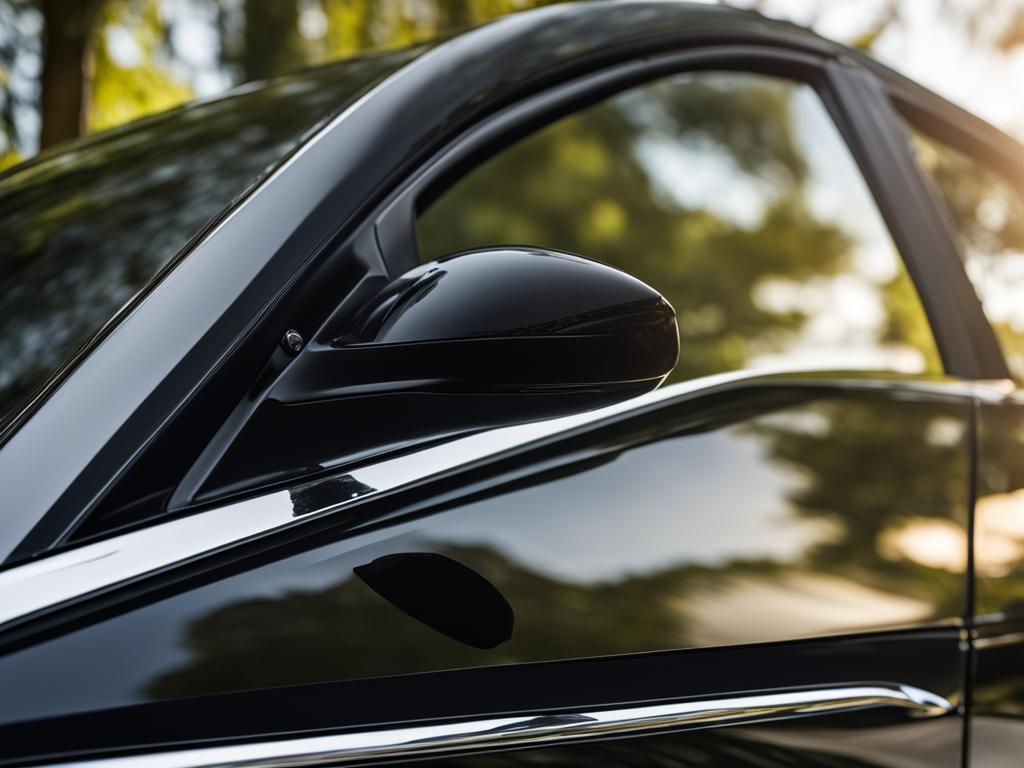
Choosing a high-quality installer, researching tint materials, and considering the warranty are crucial steps in achieving the best window tinting results.
Conclusion
After considering the various factors involved in car window tinting, it is clear that the cost can vary significantly depending on the type of tint, number of windows, and the type of vehicle. To ensure a high-quality installation and a successful tinting experience, it is crucial to choose a reputable installer with experience and certifications. This will guarantee that the tinting job is done professionally and meets the desired standards.
Additionally, it is important to consider other factors such as the warranty offered by the installer and compliance with local tint laws. A warranty provides peace of mind and protection in case of any issues that may arise with the tint. Compliance with local tint laws ensures that the darkness limits are adhered to, avoiding any legal complications.
By understanding the costs and factors involved in car window tinting, individuals can make an informed decision. It is recommended to research different shops, obtain quotes, and compare services to get an accurate estimate of the overall cost. The benefits of tinted car windows, such as UV protection, interior preservation, increased privacy, enhanced comfort, and improved gas mileage, make it a worthwhile investment.
In summary, when it comes to car window tinting, choosing a reputable installer and considering all relevant factors will result in a high-quality installation and a satisfying tinting experience. Take the time to research and select the right installer, and enjoy the benefits of tinted car windows for years to come.
FAQ
What factors affect the cost of window tinting?
The cost of window tinting is influenced by factors such as the type of tint, warranties, the number of windows being tinted, the type of vehicle, and the complexity of the windows.
How much does it cost to tint car windows by vehicle type?
The cost of tinting car windows can vary depending on the type of vehicle. For coupes, sedans, trucks, and SUVs, prices range from $69 for a single window tint to $489 for all sides and rear package + front windshield.
What is the cost for different types of car window tint?
The cost of car window tint depends on the type of tint material used. Ceramic window tint can cost between $350 and $850, dyed window tint can cost between $99 and $350, and carbon window tint can cost between $150 and $450.
What factors should I consider when choosing a window tint installer?
When choosing a window tint installer, consider factors such as the experience and reputation of the installer, their certifications, and the warranty offered for the tint.
What are the pros and cons of DIY window tinting?
DIY window tinting can be more affordable but requires specific tools, skills, and the need to comply with local tint laws. Professional installation offers expert installation, access to a wider range of tint materials, and compliance with local regulations.
Does professionally installed tint cost more than DIY?
Professionally installed tint can cost more compared to DIY installation, with prices typically ranging from $25 to $50 per window depending on the type of tint used.
How important is the quality of installation for window tinting?
The quality of installation is crucial for window tinting. Even the best films on the market can look and perform poorly if not installed properly. Choosing a reputable installer with experience and expertise ensures a high-quality installation.
What other factors should I consider when tinting car windows?
Other factors to consider when tinting car windows include the type of tint material, the number and complexity of windows, the warranty offered, and local tint laws and regulations.
What are the differences between DIY and professional window tinting?
DIY window tinting is more affordable but requires specific tools and skills, while professional tinting offers expert installation, compliance with local regulations, and a warranty.
How can I find a reputable window tint installer?
To find a reputable window tint installer, check reviews from other customers and consider visiting their showroom to see their workmanship and discuss your specific needs and preferences.
What tips can you provide for getting the best window tinting results?
To get the best window tinting results, choose a high-quality installer with experience and certifications, research different tint materials, and consider the warranty offered by the installer.
What is the conclusion about car window tinting costs?
The cost of car window tinting can vary depending on various factors. It is important to choose a reputable installer and consider factors such as the type of tint, the number of windows, and local tint laws in order to make an informed decision and enjoy the benefits of tinted car windows.

